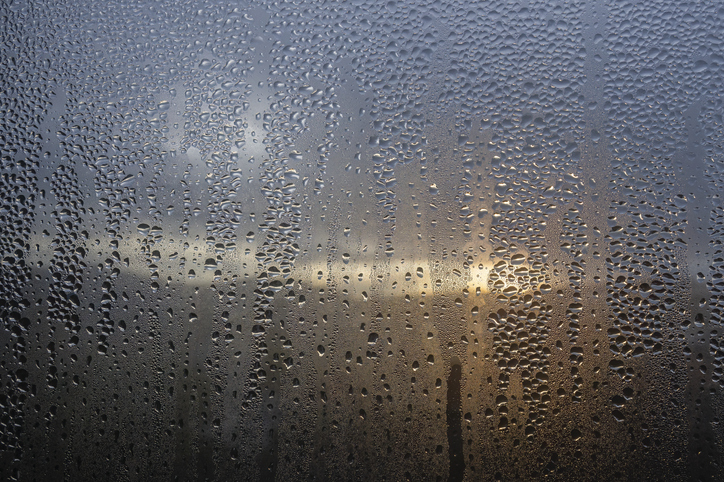Rain, Rain, Go Away: NZ's Water Crisis and the Metering Fix
- By Lachlan Colquhoun
- February 19, 2024

Incredible as it seems for a country with so much rain, New Zealand is in the midst of a water crisis.
Competing water use between residential areas and agricultural businesses has impacted drinking water quality, and old infrastructure and poor management means the nation is staring down an estimated NZD100 billion water infrastructure deficit over the next three decades.
Over the recent summer in the southern hemisphere, several council areas in New Zealand were forced to announce water restrictions because supplies became so low.
There were areas, however, where water restrictions were not needed. A comparison shows that those councils that had mandated water metering could manage their resources, while those that had not were more likely to struggle.
Water metering is a controversial issue in New Zealand, where many people believe that because it falls from the sky, it should be free for all.
However, the increasing seriousness of the water crisis has seen several councils roll out volumetric water metering over the last decade. With advances in technology, these meters have become progressively smarter.
The smart meters help identify leaks and deliver detailed consumption metrics to providers and customers. Those provided by N.Z. company Watercare take readings every 30 minutes, with data sent to the company daily.
The list of benefits extends to better backflow prevention, less stress on local water resources, reduced energy use, and, ultimately, reduced emissions associated with water use.
Better control
An analysis by industry body Water New Zealand proves the old point that it's easier to control something if you measure it, and the richer and more detailed the data, the more control you have.
Industry body Water NZ published the Tauranga City Council case study, which showed that since the introduction of metering and volumetric charging in 2002, average per capita water consumption is 25% below levels before metering. Per capita peak use is 30% lower.
As well as these significant reductions in water use, there have been clear financial advantages to the Council.
“We were scrambling for data, and I think the lesson for me is all around how data is used.”
The metering initiative has delayed estimated capital expenditure of NZD70 million on water supply investments for more than 10 years. The city is saving approximately NZD1 million in depreciation costs every year new infrastructure is delayed.
Meanwhile, in the capital of Wellington, there is a strong movement opposing water meters from residents.
The City of Wellington was one of those threatened with water restrictions over summer, and—perhaps because of a lack of water meters—the city is wasting around 40% of its water due to leaky infrastructure, equivalent to around 27 Olympic-sized pools each day.
In another local council district, Kapiti, where the mayor was forced out in a backlash against water meters a decade ago, the installation of water meters led to the discovery of 443 leaks in the water system and many more in subsequent years. This discovery alone saved millions of liters a year. Kapiti was one of those councils not challenged by water shortages in the summer of 2023/24.
A recent project by building industry research organization BRANZ examining water usage in Kiwi homes found median water use in non-metered households in the study (551 liters) was 72% higher than in metered households (319 liters).
Over in the U.K., the costs and benefits of a coordinated national smart water meter roll-out have been analyzed by FrontierEconomics.
The study found a nearly two-to-one benefit-to-cost ratio, with every GBP1 spent delivering GBP1.73 in social benefits. At the same time, smart meters could reduce U.K. greenhouse gas emissions by up to 0.5%.
Value of data
Back in New Zealand, the value of data in the public works area has been one of the big lessons in the reconstruction effort from the Christchurch earthquake.
David Pinkney is an asset manager at the Christchurch City Council working with wastewater and was involved in several infrastructure reconstruction projects.
Looking back on the experience in a conversation with me last year, Pinkney observed that "we didn't really appreciate the value of data."
"When we started on this journey, data was just something you used for one job and then moved on to the next," he said.
Now, he says, aggregating data from different sources and making it usable and available is critical to improving asset management practice.
Better data management can better understand assets and how they might perform in stressful situations—such as another earthquake—and provide a guide and template for how to respond in the future.
He is enthusiastic about integrating geospatial data into design software and asset management systems and moving away from "data capsules" to a national approach so that "if the West Coast falls over, we have access to their systems on the cloud."
In responding to these issues, the City of Christchurch is now collaborating on a project for national standards for data transfer between private and public organizations.
“We were scrambling for data, and I think the lesson for me is all around how data is used, the decision making and the robustness around quality data sets and how you can leverage that,” Pinkney said.
Image credit: iStockphoto/Janice Chen









Lachlan Colquhoun
Lachlan Colquhoun is the Australia and New Zealand correspondent for CDOTrends and the NextGenConnectivity editor. He remains fascinated with how businesses reinvent themselves through digital technology to solve existing issues and change their business models.